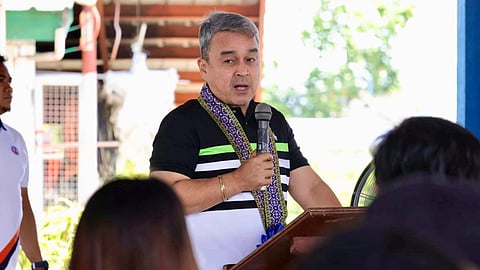
- NEWS
- the EDIT
- COMMENTARY
- BUSINESS
- LIFE
- SHOW
- ACTION
- GLOBAL GOALS
- SNAPS
- DYARYO TIRADA
- MORE

Calls to totally ban Philippine Offshore Gaming Operators (POGOs) have resurfaced anew in light of the spike in reports linking the industry to a slew of criminal activities.
Cagayan de Oro Rep. Rufus Rodriguez and Surigao del Norte Rep. Ace Barbers renewed their calls on Monday in the midst of the controversies hounding POGOs, the hottest of which was the Baofu Land Development Inc., allegedly owned by suspended Mayor Alice Guo.
Baofu, which hosts a POGO compound in Bamban, Tarlac, was raided for alleged human trafficking and serious illegal detention by the Presidential Anti-Organized Crime Commission on 13 March.
Rodriguez said the Baofu raid is proof that “these POGOs have become fronts for illegal activities such as money laundering, illegal immigration and employment, prostitution, extortion and kidnapping.”
“The negative, evil, and harmful effects of POGOs on society far outweigh the revenue they bring in,” Rodriguez said.
Philippine Amusement and Gaming Corp. chairperson and chief executive officer Alejandro Tengco has opposed outlawing POGO, citing the funds it generated to the agency’s revenues in 2023 alone, aggregating P5 billion.
According to Tengco, less than half of the remaining 75 POGOs in the country are Chinese-owned.
Barbers, in the same vein, said that the POGOs, which were banned in mainland China, only brought to surge in the number of crimes in the country and contributed heavily to the deterioration of the moral fiber of Filipinos.
“Whatever benefit we got from them is nothing compared to what they have put us in. The social costs keep mounting, and no amount of taxes or perceived jobs can outweigh them,” said Barbers, chairperson of the House committee on dangerous drugs.
He added that POGOs are “fronts to Chinese led criminal syndicates, money-laundering, espionage, cyber hacking, wiretapping, and other illegal activities that gave rise to murder, kidnapping for ransom, rape, prostitution, torture and countless other unspeakable barbaric activities.”
“If we continue to be blind and refuse to read the writings on the wall, we are doomed,” Barbers lamented.
In October last year, PAGCOR changed the label of POGO to Internet Gaming Licensees or IGL due to negative connotations associated with the offshore gaming industry.
The rebranding, however, drew flak, particularly from lawmakers, who suspect that the move was a veiled attempt to camouflage the illicit activities of POGOs in the wake of multiple reported violations by the firms.
Barbers vehemently asserted that PAGCOR’s attempt to deodorize POGO through rebranding is “futile” and merely highlighted its negative impacts on society.
“No change of name can ever erase its legacy of crimes. POGO by any other name stinks just the same”, Barbers concluded.
Several bills calling to outlaw POGO are pending in Congress.
In February, the House Games and Amusements Committee approved House Bill 5082, which aims to disband and label all POGO operations in the country as illegal.
